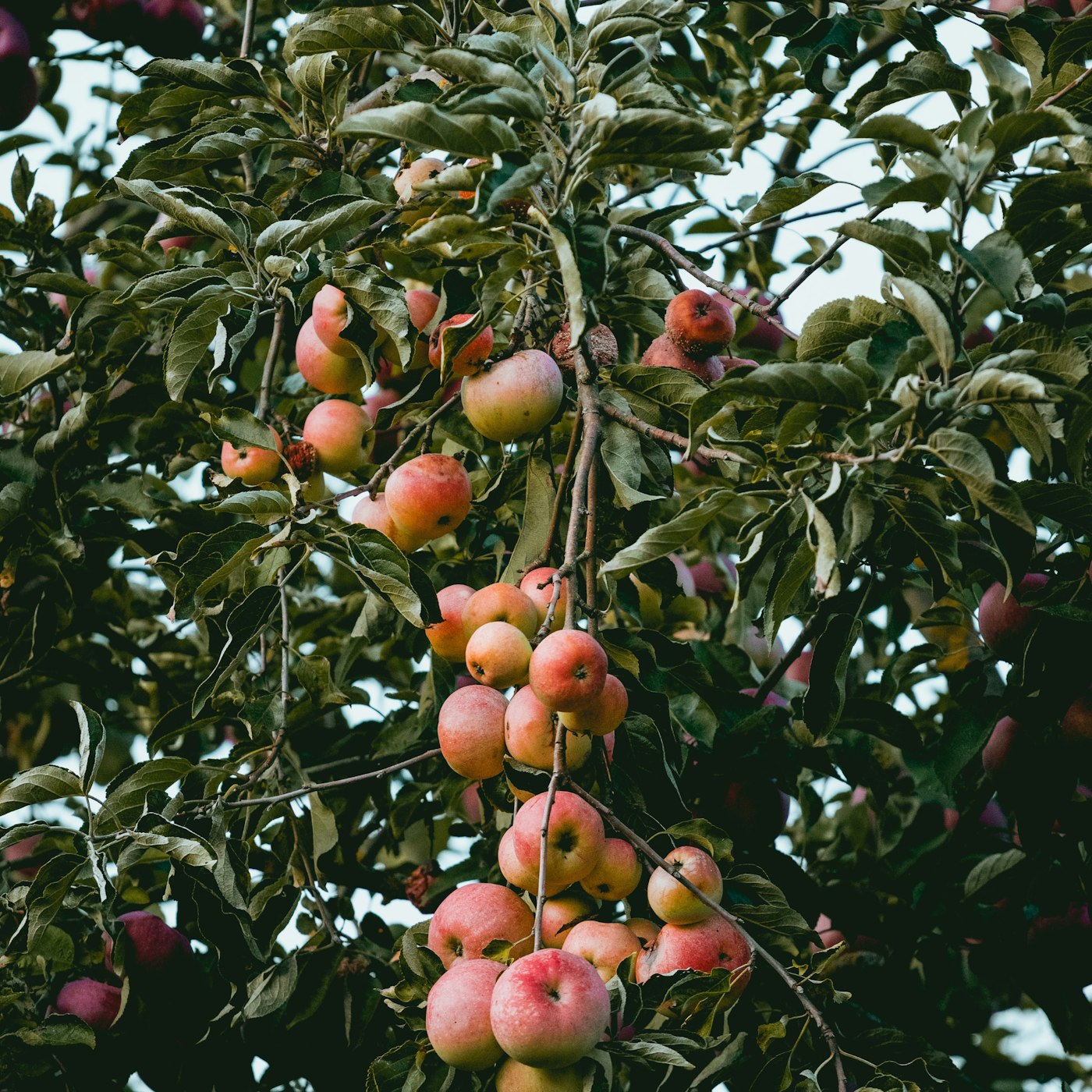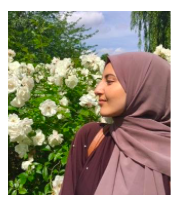The Spiritual Checklist: Preparing the Heart for the Month of Ramadan
by Seeds of Selma in Ramadan on 18th January, 2024

Sow the seeds in Rajab
Irrigate the crop in Sha’ban
Reap the harvest in Ramadan
A Ramadan well-prepared for can change your life, in fact I have felt the blessings are limitless, we are reminded this through Qur’an and Hadith: “He leaves his food, drink, desire for Me. Fasting belongs to Me and I reward for it.” [Bukhari]. The Sahabah (RA) used to prepare for Ramadan six months in advance and we should and can feel inspired to do so too.
The habits that we develop and strengthen in the lead up to and during Ramadan should InshaAllah continue long after the blessed month has ended and according to scholars, this is a sign for us all that our Ramadan will be accepted. We as humans are creatures of habit and the word ‘habit’ itself comes from the Latin word ‘Habitaris’ which means to live. Indeed, habits make up a lifetime, and it is up to us whether or not they are conducive to our spiritual growth.
The goal is to always start small, and to not feel overwhelmed, with the intention to stay consistent as according to the narration of Aisha (RA), The Prophet ﷺ stated that
“The best deeds are those which are consistent even if they are small.’
Small pockets of the day can be used to increase us in barakah, protect us from sin, weigh heavily on our scales and keep us connected to our Lord which is the ultimate goal.
It is about setting the spiritual standard and prioritising spiritual health.
The Deen provides us with practical steps to implement, and slowly but surely building yourself up to continue to seek in the path of Allah. If you walk to Him, He comes to you running, all it takes is one step. We often start Ramadan strong and slowly lose momentum over the month, but start working on your spiritual toolkit now, so that your habits will continue long after in sha Allah.
Wudhu
Be mindful when you are performing wudhu, in fact, start by visualising the water wash away the sins from each part of what is being cleansed. Aim to stay in wudhu so that it pushes you to be mindful of your actions like speech and thus not using harsh words or listening to idle talk, and lowering your gaze to the faults of others.
Salah
Prioritise all of your prayers by aiming to complete them on time each day and with khushoo.
Give yourself a few moments before each prayer to stabilise your breath, clear your mind, set your intentions and ease into salah. We often jump into our salah and bring whatever we were doing into that safe space. Ground yourself in this moment with your Lord and be conscious of your recitation and the movements of prayer. It is a blessing to have another chance to communicate with Allah, to express gratitude and bow in submission and obedience to the Lord of the worlds.
Also aim to pray sunnah as much as possible which help to complete the deficiencies in the fardh prayer; praying the sunnah prayers is akin to building a moat around the fortress of your soul. Go further and seek the blessings and the pleasure of Allah in tahajjud—the blessed time of the last third of the night.
“The Lord descends every night to the lowest heaven when one-third of the night remains and says, ‘Who will call upon Me, that I may answer Him? Who will ask of Me, that I may give him? Who will seek My forgiveness that I may forgive him?'” [Bukhari, Muslim]
As well as completing more sunnah prayers, aim to complete the sunnah fasts of Monday and Thursday, to seek the reward of Allah and to also prepare your body for the fasting month, these fast can be carried out through the whole year.
Dhikr, Salawat and Istighfar
Do more Dhikr and see the Barakah in your day.
Do Salawat to increase your love for the Prophet ﷺ.
Do Istighfar to cleanse your soul of the dirt of sin.
Keep your tongue moist and heart open with dhikr and develop these as habits after praying, during the rest of the day through tasks such as preparing food, completing household tasks, walking, and whenever you remember.
Dhikr carries divine healing energy that protects you against the spiritual ills and toxicities of this dunya. It is a shield that keeps you connected to Allah (SWT) in every moment, with whatever you are doing and wherever you are, you are assured that indeed Allah is near, He is listening, He is your guardian and protector.
Think of dhikr as a thread that keeps you in constant communication with Allah and inshaAllah over time will become the anchor that keeps you rooted in your purpose as a Muslim, and allow you to stand strong despite the endless pulling and tugging of this world.
Cultivate your relationship with Allah
Devote some time to speak to Allah on a regular basis about everything—your hopes, dreams, worries and fears.
Use the names of Allah, the beautiful names to call upon Him and seek different names based on your needs for Allah loves to give.
- Al-Razzaq for sustenance in your life and others
- Al-Fattah for opportunities and opening doors with the divine wisdom of Allah
- Al-Waduud, Al-Raouf for improving or strengthening relations with family, a spouse, children, the community
Remember that Allah is sufficient for a believer and we need Allah akin to how plants need sunlight to grow. Our souls wilt and our hearts are lifeless without Allah.
Qur’an
The best advice I ever received was to read and recite Qur’an everyday. Even if it’s just one verse a day, start small and it will help to cultivate a habit that is grand. Qur’an can be active and come alive in our lives, as we may interpret the words differently depending on our current situation, and we may even see the answers to our concerns reveal themselves to us, and this is Allah comforting you that everything is unfolding as it should. It will lead to stronger tawakkul, that feeling of trust in Allah’s plan.
Listen to your favourite reciters daily, recite with them and develop a love for the words of our Lord. Listen to lectures on Tafsir, you could even explore Qur’an journaling, or take part in online Halaqas or seminars that expand your love for the words of Allah. You slowly start to yearn for the reassurance of the words of Allah and the peace that it brings you and naturally gravitate towards it.
Reflections and Mindfulness
We experience a lot of excess noise and distraction which can become suffocating, and it becomes harder to sift through the clutter. We are also suffering from too much access to indulgence, which feeds the nafs.
The nafs (lower self) is like a beast that needs to be disciplined but if you constantly feed it – bear in mind with each time, the desires increase exponentially – it grows and starts to overwhelm and overpower the ruh. In Ramadan we deprive our nafs of the basal desires such as food, intimacy, sleep and instead seek to tend to the ruh which is strengthened by spiritual connection.
Pay attention to what distracts you and leads you away from your spiritual goals and develop mindfulness of your consumption. The heart is a vessel that only pours out what it contains. Ask yourself: what sort of content are you feeding your heart? The heart is the sanctuary of Allah, so protect it.
Spend time in deep reflection, ponder on your blessings, the wisdom behind everything in existence, how nothing exists without the will of Allah and how every creature seeks sustenance from Allah ultimately and Allah alone.
Developing an awe and gratitude for the blessing of Islam can really help to increase love for the deen. For me spending time in nature, where the birds and trees are in constant dhikr allow that connection.
Spending time alone is vital for our emotional and spiritual wellbeing as we rediscover ourselves and this reminds me of the fitrah – the preordained nature of each individual – and the reality that the entire journey of the soul is to rediscover it because it knows Allah.
Muhasabah. Go inward – evaluate yourself.
Hold yourself accountable and assess what you’re doing well, and what needs work. Umar RA said, “Evaluate yourselves before you are evaluated and weigh out your scales before they are weighed out for you. It’s easier for you to evaluate yourself today before the ultimate hisaab tomorrow.” Allah is the Most Forgiving and the Most Merciful. The mindset of not being ‘good enough’ is a lure of the shaytan often, who strives to stop you from seeking your lord’s forgiveness.
The Deen is constantly empowering us, encouraging us to seek betterment of our souls, of our different roles, and our contributions to society.
Intentions
With all that has been aforementioned, I would like to end on a beautiful note that pulls everything together and that is the necessity and power of good intentions. By constantly assessing what you are doing something for, it helps you develop a deeper awareness and conviction with yourself.
Intention is the pillar of worship: I like to visualise intentions as planting a tree.
Deeds that are not done with the purpose of pleasing Allah is like planting a tree with rotten roots, there is no goodness. Only with the right intention can the deed grow into something fruitful that will be of benefit to your soul and those around you. Goodness has a ripple effect, it spreads far and wide in your life and into your akhira, as well as into the lives of others.
May Allah grant us the ability to develop discernment with our souls, constantly strive to do and be better and to positively impact those who we cross paths with whether for a fleeting moment or for a lifetime.
May Allah allow us to live to see another Ramadan, get closer to Him and to purify our souls from spiritual debris.
May Allah make us of those who are beloved to Him
Make a prayer for all those who didn’t live to see it.
آمين

Seeds of Selma
Selma Maloumi is a graduate in BSc Biology and MSc Medicinal Natural Products and Phytochemistry at UCL. She shares knowledge on all aspects of health on her Instagram blog @SeedsOfSelma, as she believes it is multifaceted, as we are. She also aims to revive the wisdom of ancient medicine and herbalism for modern life. In addition, through the creation of conscious healing spaces for women in London, she aims to connect the dots between Islam, science and nature. Selma has recently become qualified as an Integrative Health Coach and has completed her further studies in functional medicine, and is now looking forward to working with women on their journey to health and vitality.